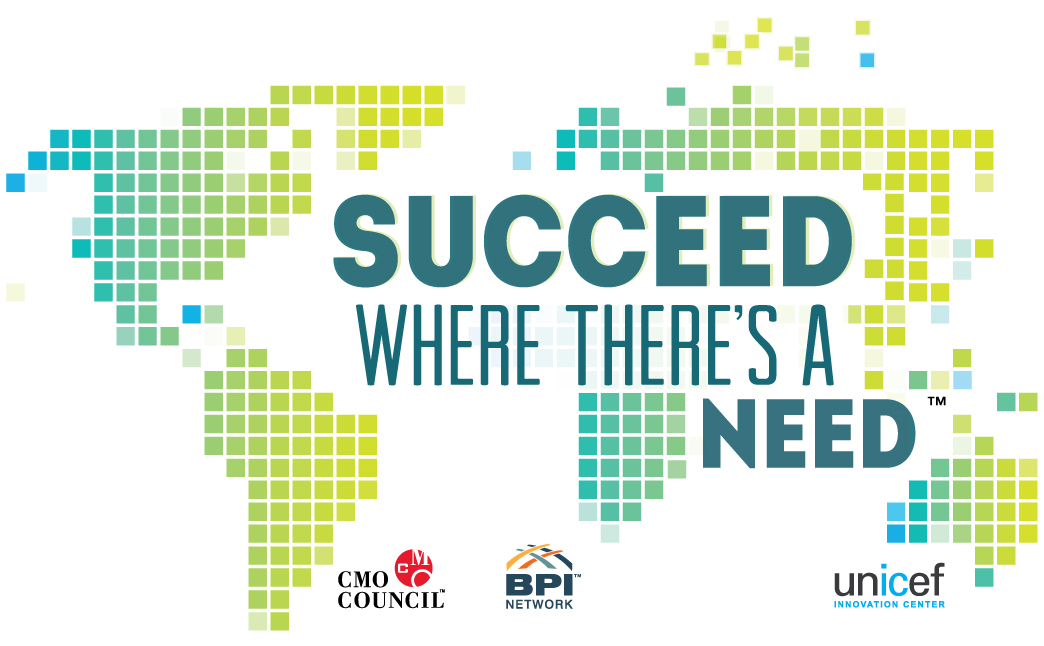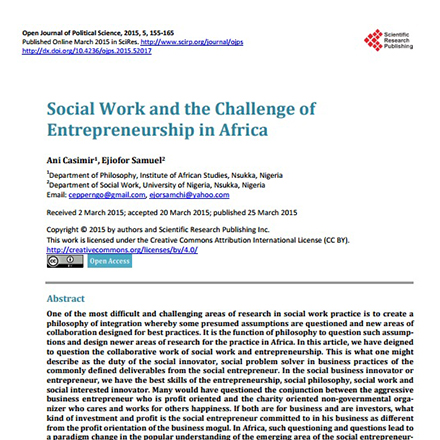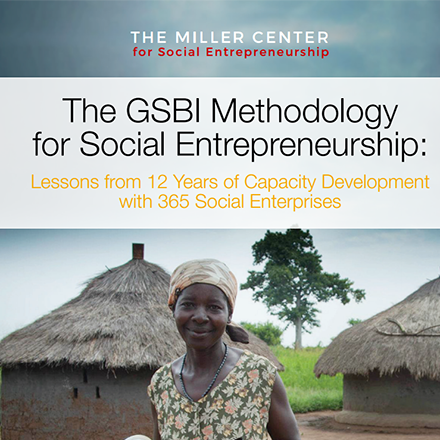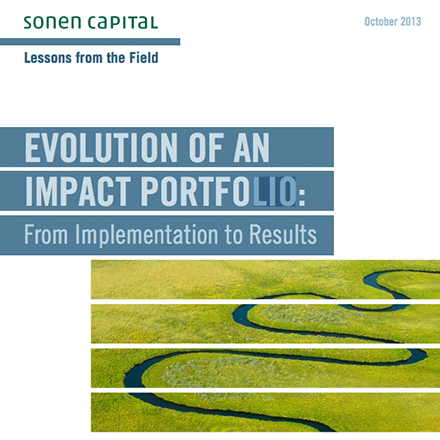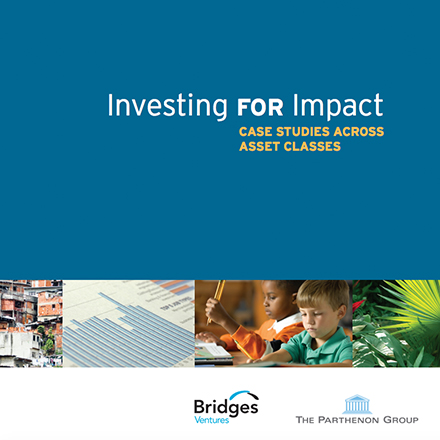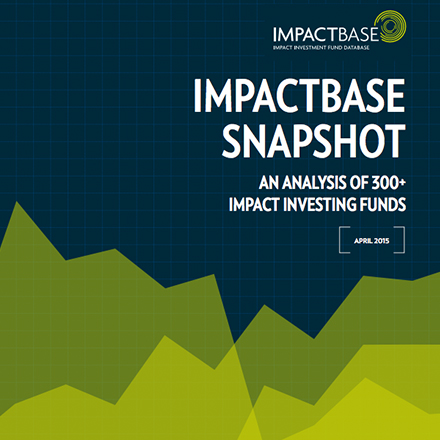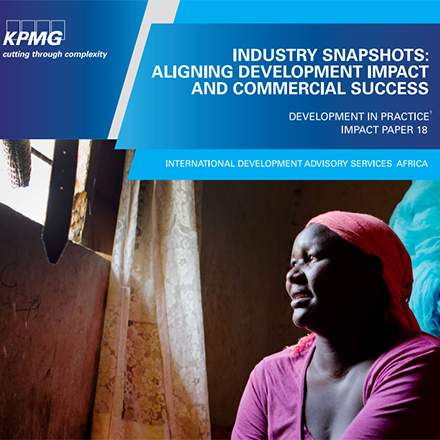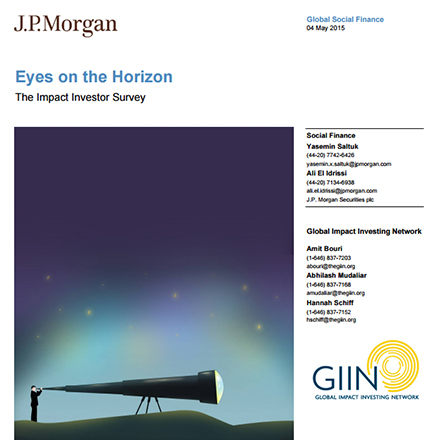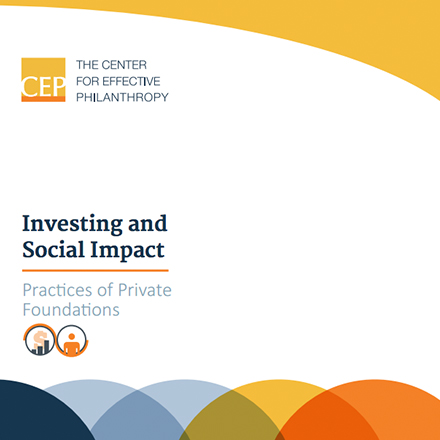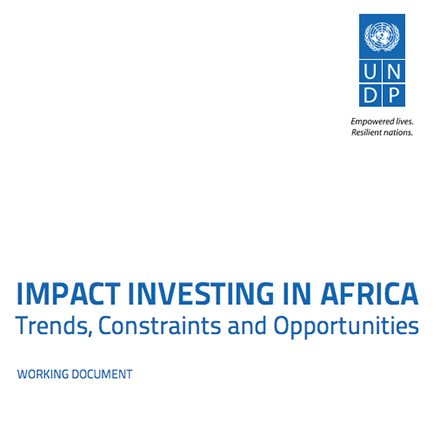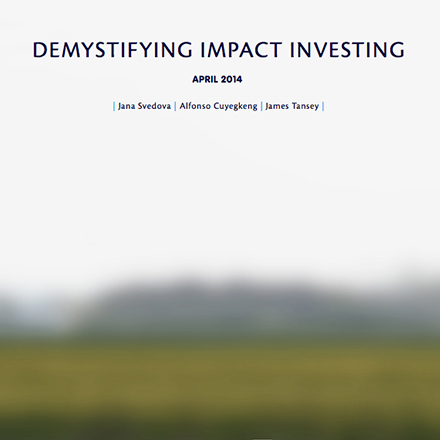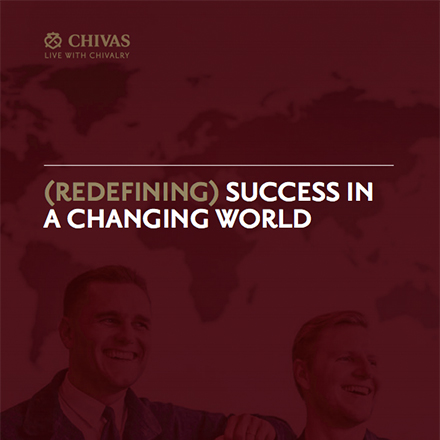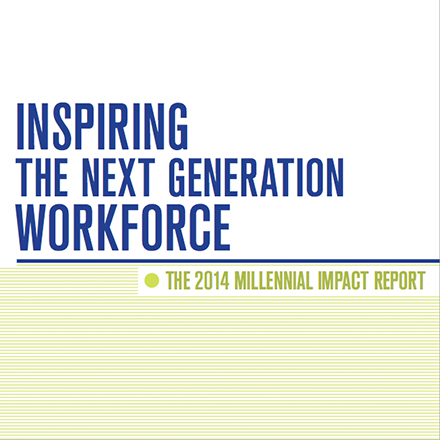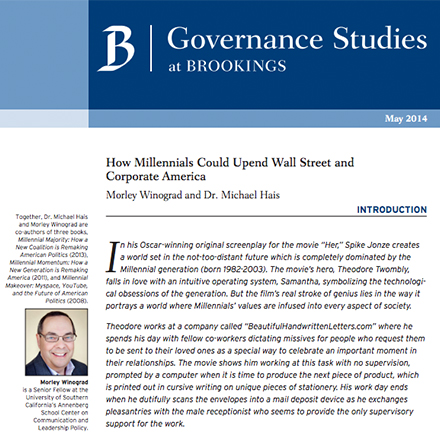Reports
The business of bringing next generation biosensor diagnostics to vulnerable women
In 2020, a woman dies every two minutes due to pregnancy or childbirth and 95 percent of all maternal deaths occur in low- and middle-income countries. This Insight Report explores the potential global market and private and public sector pathways to maximize equitable worldwide access to Smart Pregnancy Tests (SPTs) that are highly accurate, low-cost, and resistant to temperature and humidity. A market-based approach would enable the SPTs to become commercially viable and incentivize the private sector to continue at scale. This could lead to more sustainable outcomes for women over time. This ground-breaking diagnostic is an outcome of research by Rhodes University Biotechnology Innovation Centre in South Africa that was enabled by UNICEF Office of Innovation. Read The Brief. Download report »
Innovation Nodes
Innovation Nodes are transdisciplinary and collaborative spaces that focus on reflecting and generating novel wisdom in new and unknown areas of potential innovation for children. UNICEF’s Global Innovation Strategy looks “to identify gaps and opportunities and uncover unproven approaches and technologies to be explored.” This is the focus of the Innovation Nodes. The nodes inquire about realms of impact for children yet to be explored and discovered, launching new areas of expertise in emerging domains with unknown impact on innovation for children.
Learn more »
What's Working in Startup Acceleration
There is growing interest among public and private sector organizations in supporting small and growing businesses as a catalyst for economic development around the world. This is stimulating a range of support mechanisms for early stage entrepreneurs,including incubators, angel investor networks, training programs and, more recently,accelerator programs. This report aims to provide accelerator program managers and funders with practical lessons and insights to consider for their own programs, based on the experiences and analysis of these fifteen Village Capital programs. Through this and other research efforts, this report hopes to stimulate more evidence-based learning and practice improvements in the entrepreneurial acceleration sector. Read more »
Social Work and the Challenge of Entrepreneurship in Africa
In the great work of social work and entrepreneurship, a lot of assumptions and questions are posed about concepts, ideas and programs of collaboration, cooperation and partnership. But what helps in bringing the two concepts together and clarifies the ideas in a critical way is philosophy as an analytical tool and social work as an experiential framework for solving the problems of the individuals in their in their social existence. What is exposed in the analysis is the fact that the social worker, the business man and the philosopher of humanitarian intervention are brought together by their interest to help the society to solve the existential social work problems of the society. Read more »
The GSBI Methodology for Social Entrepreneurship: Lessons from 12 Years of Capacity Development with 365 Social Entreprises
Social entrepreneurship is a global movement. Although this movement has diffuse origins, the pioneering work in microfinance by Muhammad Yunus and the Grameen Bank demonstrated that helping the poor to become active participants in the economy can provide a path out of poverty. Social entrepreneurship builds upon the logic of microfinance and extends it by creating enterprises that provide essential goods and services, as well as opportunities for employment. In the Global South, social entrepreneurship has been used to pursue the UN’s Millennium Development Goals. The social entrepreneurship movement promises a different kind of economic globalization, a pro-poor form of economic development. While there are many thousands of social enterprises around the world, at issue is whether they can scale and fulfill their collective potential. Read more »
Evolution of an Impact Portfolio: From Implementation to Results
For the last seven years, KLF’s Return-Based Impact Portfolio’s performance has been accumulated to provide a case study for examining real returns achieved through the application of impact investment strategies across asset classes in a mature portfolio. The impact investing spectrum defines an array of investment approaches that can guide an investor’s vision for creating an impact portfolio that reflects both financial and social impact objectives. Read more »
Investing For Impact: Case Studies Across Asset Classes
This report is intended for the investment community and aims to help investors understand this emerging industry. Many investors have begun to explore Impact Investments by investing in microfinance in developing countries or community development projects in the US. However, there is still a perception that Impact Investment always entails a sub-market financial return, which this report demonstrates is far from the case. Read more »
Impact Investing in Africa: Performance Insights from the KPMG IDAS Africa Portolio
Impact investor interest in Africa is currently growing faster than the industry’s ability to effectively deploy this capital. To overcome this challenge, investors need to better align their expectations, capabilities and strategies with market realities. This portfolio can offer insights to impact investors experimenting with early-stage finance or seeking better balance between impact and commercial performance. Read more »
ImpactBase Snapshot: An Analysis of 300+ Impact Investing Funds
This report—the GIIN’s first comprehensive analysis of the data in ImpactBase—aims to highlight observable trends that will provide actionable data for impact investors. These report findings are based on data from 310 FUNDS downloaded from ImpactBase in August 2014. Read more »
Industry Snapshots: Aligning Development Impact and Commercial Success
Through management of various funds in Africa, KPMG’s International Development Advisory Services (IDAS) has allocated capital to over 200 businesses working on projects that will have a social impact across the continent. This portfolio can offer valuable insights to impact investors experimenting with early-stage finance or seeking better balance between impact and commercial performance. Read more »
Eyes on the Horizon: The Impact Investor Survey
This report, conducted by The Global Impact Investing Network (GIIN) and J.P. Morgan, presents the findings from the fifth annual impact investor survey based on core questions about investor activity and perspectives, and also additional specific topics such as loss protection, technical assistance, impact management and measurement, and exits. Read more »
Investing and Social Impact
Much attention is being paid to foundation investing practices— both foundation efforts to pursue programmatic goals through impact investing, and whether foundations are investing endowment assets in ways that may be at odds with their missions, values, or goals. To better understand foundation practices in these areas, the Center for Effective Philanthropy (CEP) collected data on the prevalence of impact investing and negative screening, as part of a larger operational benchmarking study with large private foundations. Results show a sizeable percentage of responding foundations report engaging in impact investing, but tend to commit very small percentages of their endowment and/or program/grant budget, to the effort. In addition, most foundations that responded to our survey report having no negative screens on their endowment investments. Read more »
Impact Investing in Africa: Trends, Constraints and Opportunities
This report draws primarily on findings from related global research as well as key insights from a series of interviews conducted with stakeholders from across the African impact investing ecosystem, primarily impact investors, impact entrepreneurs and other enabling actors. This report is not supposed to cover all and every aspect of the impact investment sector, but rather aims to highlight a few key themes that are common across various countries in Africa or that are articulated by the African Union Commission (AUC) frameworks and the upcoming Sustainable Development Goals. Read more »
Demystifying Impact Investing
Through evaluating the size, scope and scale of the impact investment sector, this report seeks out to answer several core questions such as, differentiating between investments that seek to generate financial returns comparable to traditional investments, and distinguishing between investments that focus on creating impact in developed and developing country markets. Read more »
(Redefining) Success in a Changing World
A number of global trends are converging to accelerate the pace of change in our communities, our lives and the way in which we define success in business. As a result, the world we are passing on to the coming generations is both promising and fragile. This report integrates primary surveys, opinion leader and practitioner interviews, as well as experiences and observations of dozens of business leaders, social entrepreneurs, global Millennials, academics and other experts, all of whom were generous with their time and resources. Collectively, this analysis offers a compelling narrative about the future of social entrepreneurship around the world. Read more »
Inspiring the Next Generation Workforce
This study explores what motivates Millennials to engage in company cause work, the findings are separated into three general themes: culture, relationships and resources. These themes categorize the main assets cause work generates for a company. Through surveys conducted by Millennial employees from a variety of companies and industries across the United States, their compiled data and inferences help understand how Millennials want to engage with their companies through cause work. Read more »
How Millennials Could Upend Wall Street and Corporate America
This paper describes the distinctive and widely shared attitudes and beliefs of the Millennial generation as it slowly, but surely, reshapes corporations in its image and end the confrontational and bottom-line oriented world that Boomers and Gen-X’ers have created. Read more »
